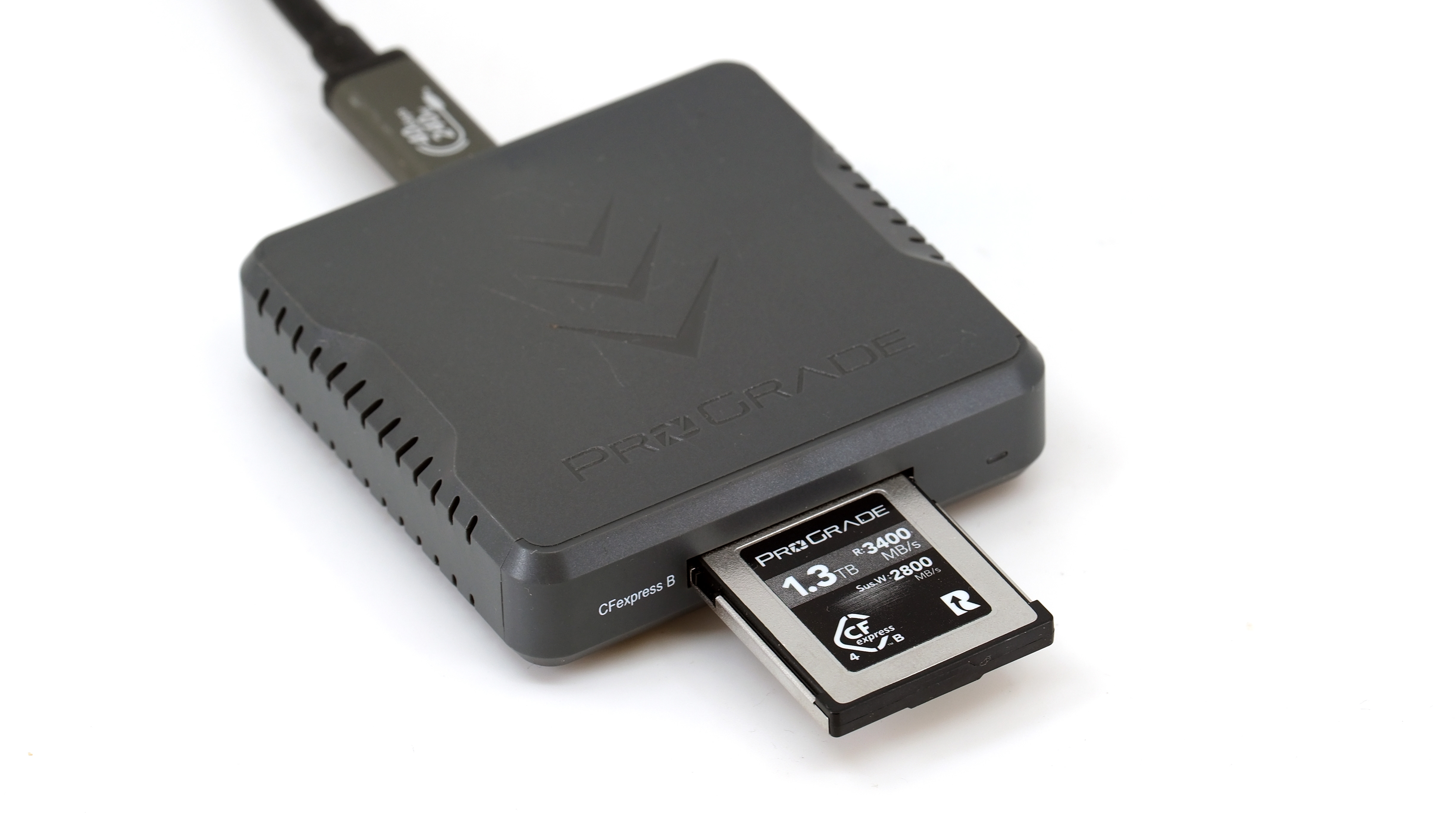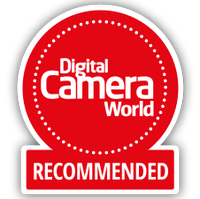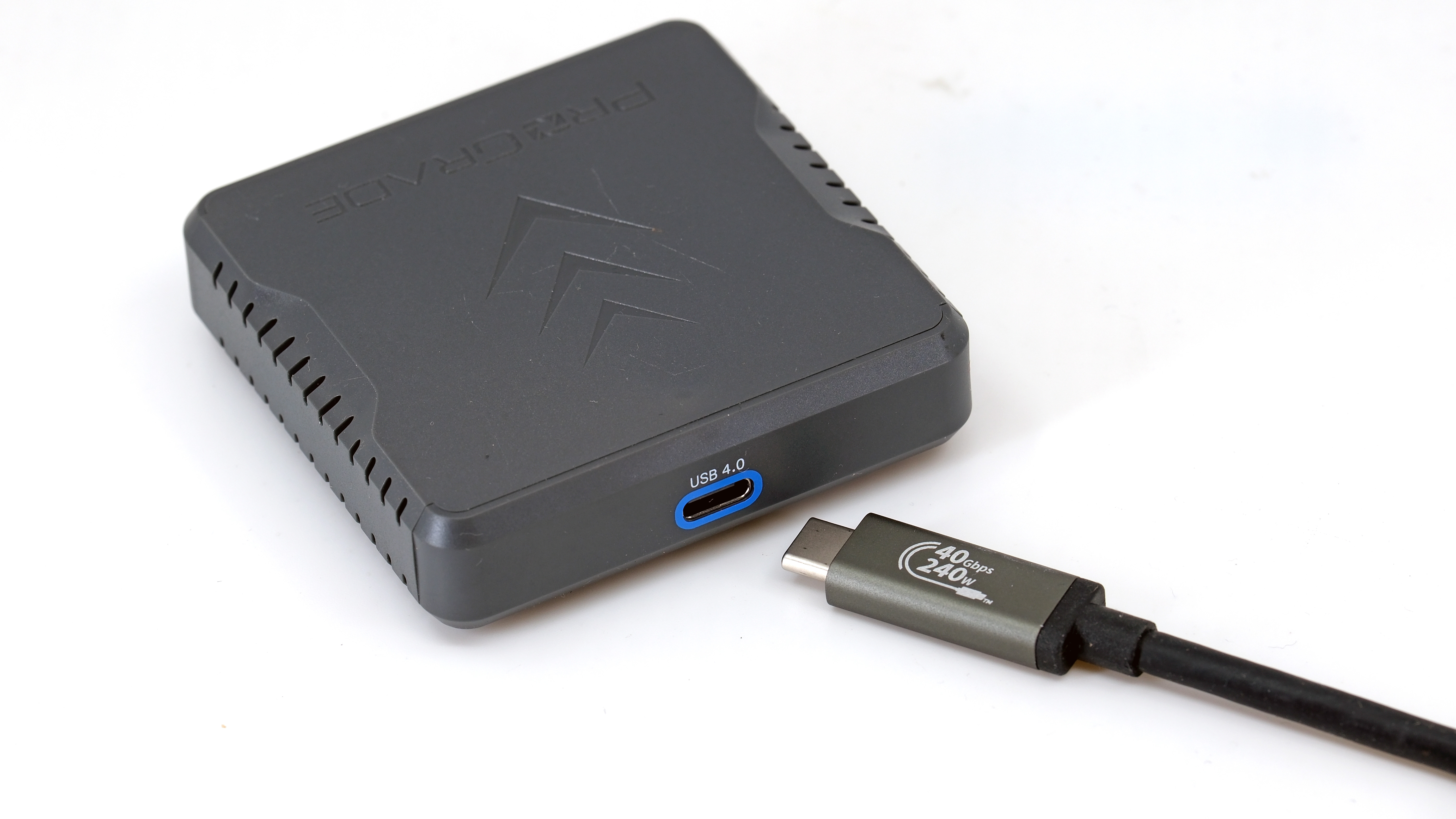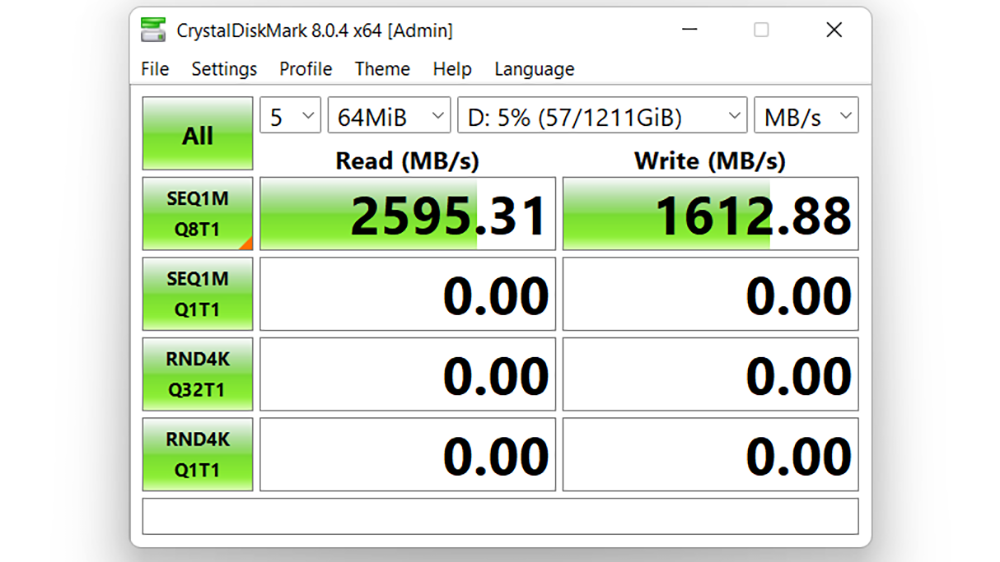Digital Camera World Verdict
The ProGrade Digital PG05.6 USB4 card reader is the fastest card reader we've ever tested. No USB 3.2-based Type B reader will get close to the transfer speeds this ProGrade reader is capable of. If you want to realize the speed potential of a Type B memory card (and you have a USB4-capable computer), the ProGrade PG05.6 is the only Type B card reader worth buying.
Pros
- +
USB4 interface
- +
Blistering transfer speeds
- +
Excellent build quality
Cons
- -
High (but justified) price
- -
Could be even faster
Why you can trust Digital Camera World
Even as a photography and tech journalist, I can't pretend that even the best memory card readers are the most exciting devices. Prograde Digital's PG05.6 CFexpress Type B reader is rather more special than your average card reader though. It may look pedestrian, but this is one of an extremely rare breed of readers to use the cutting-edge USB4 interface. This gives it the potential to be 4x faster than a typical CFexpress type B reader based around USB 3.2 Gen 2 technology, and therefore this could also be the fastest memory card reader in the world.
Part of my indifference towards the humble card reader is that most tend to offer essentially the same performance, being based around the now ubiquitous USB 3.2 Gen 2 interface. This means they'll all be capable of a theoretical 10Gbps transfer speed - or around 800-900MB/s in the real world. For an SD card reader, that's perfectly sufficient, but when it comes to CFexpress Type B, 800-900MB/s just isn't enough. Even the 'slowest' Type B cards are capable of over 1200MB/s, meaning a USB 3.2 Gen 2 CFexpress reader will noticeably bottleneck a Type B card.
The ProGrade PG05.6 on the other hand should be capable of up to 40Gbps, or 5000 Megabytes per second - that's enough to theoretically max out even the latest generation of CFexpress 4.0 cards that are capable of speeds approaching 4000MB/s.
Read more: the best CFexpress cards
Specifications
| Supported cards | CFexpress Type B (no XQD compatibilty) |
| Interface | USB 4.0, Type C |
| Performance Speed | up to 5 gigabytes per second |
| Operating Temperature | 0°C ~ 70°C |
| Warranty | 2 years |
| Size (L x W x H) | 70 x 70 x 20mm |
| Weight | 113g (3.99oz) |
Design & handling
Externally there's not much to say about the PG05.6 - it's an inconspicuous dark gray square. However it does feel like a quality product in the hand, with a reassuring weight, and a solidity to the plastic casing rarely found in a card reader. A status light alongside the card slot keeps you informed about data transfer activity, and on the rear is a single Type-C connection. The reader is supplied with a 0.8-meter long USB cable, and it's important this exact cable is used with the reader if you want to maintain the fastest transfer speeds, as this is a high-quality USB4-certified cable.
Performance
It may seem obvious, but for the avoidance of doubt: you can't just plug this card reader into any old USB port on your computer or laptop and expect to get USB4 transfer speeds. While the reader is backward-compatible with USB 3.2, your computer will need to support USB4 in order to unleash the full potential of the PG05.6. Check your laptop's specs closely, and realistically if it's older than a 2022 model, it's highly unlikely to support USB4, regardless of its pedigree.
Thankfully we have a high-end HP Z-Book Studio laptop in our arsenal boasting full-on USB4 support with which to test the PG05.6. We also needed a fast CFexpress Type B card in order to really put the reader through its paces, and handily ProGrade also sent us their CFexpress Type B 4.0 Cobalt card. This blisteringly fast Gen 4.0 card is capable of read speeds up to 3400MB/s, and 3000MB/s write speeds, making it one of the fastest Type B cards on the market - the ideal match for the PG05.6.
The best camera deals, reviews, product advice, and unmissable photography news, direct to your inbox!
With our hardware in place, we then broke out the CrystalDiskMark storage benchmarking software to see what the PG05.6 can really do. We recorded a maximum read speed of 2595MB/s, and a fastest write speed of 1613MB/s. Sure, these numbers are quite a way short of the 3400/3000MB/s read/write speeds that our test card is supposedly capable of, but they're also the fastest-ever speeds we've recorded from a memory card reader, and by a wide margin.
Switching to real-world file transfers, the same Prograde CFexpress 4.0 Type B card managed a sustained 1556MB/s read speed, albeit with a slightly disappointing 282MB/s sustained write rate. We also tried a SanDisk Pro Cinema Type B card in the PG05.6, and despite it being slower on paper than the ProGrade card, it managed a sustained 538MB/s write speed. Although again, this is a long way short of SanDisk's advertised 1400MB/s minimum write speed for this particular Type B card.
Verdict
The ProGrade Digital PG05.6 USB4 card reader is the fastest card reader we've ever tested. No USB 3.2-based Type B reader will get close to the transfer speeds available from this ProGrade reader. We were somewhat disappointed that the two Type B cards we used to test the reader didn't transfer at their maximum advertised speeds. The explanation for this could be a quirk with our test computer, however we aren't blessed with a plentiful supply of USB4-capable computers, so that's one variable we're currently unable to check. Even so, it's somewhat of a moot point, as the PG05.6 is so rapid that unless you're transferring terabytes of data every day, you'll still be more than satisfied with the performance it offers. Quite simply, if you want to even get close to the speed potential of a Type B memory card, and you have a USB4-capable computer, the ProGrade PG05.6 is the only Type B card reader worth buying.
Ben is the Imaging Labs manager, responsible for all the testing on Digital Camera World and across the entire photography portfolio at Future. Whether he's in the lab testing the sharpness of new lenses, the resolution of the latest image sensors, the zoom range of monster bridge cameras or even the latest camera phones, Ben is our go-to guy for technical insight. He's also the team's man-at-arms when it comes to camera bags, filters, memory cards, and all manner of camera accessories – his lab is a bit like the Batcave of photography! With years of experience trialling and testing kit, he's a human encyclopedia of benchmarks when it comes to recommending the best buys.





